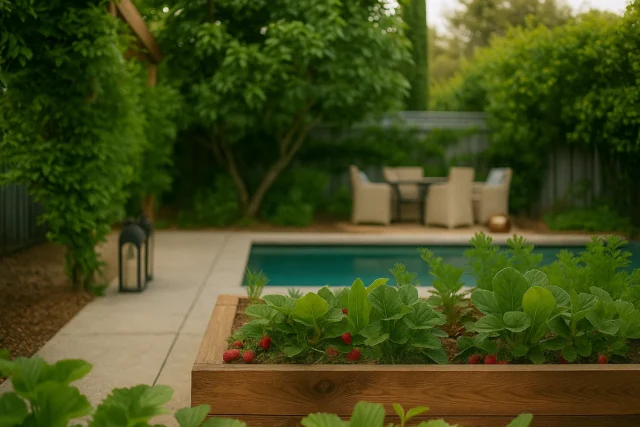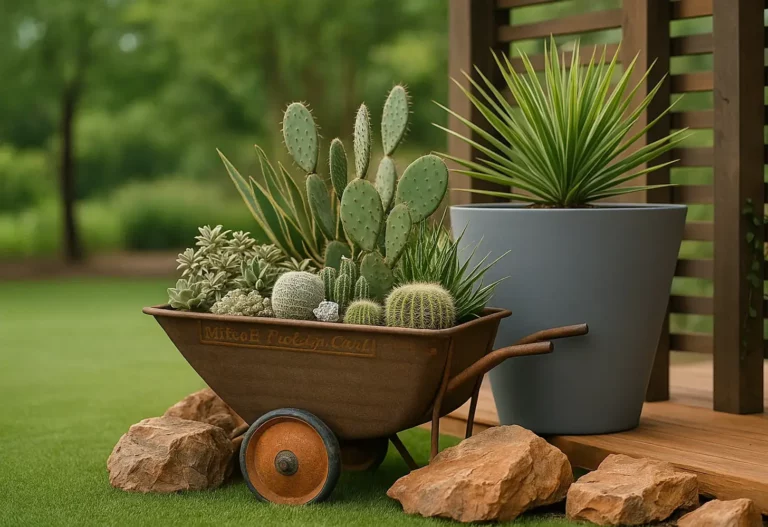Creating a nutritious meal plan for your 12-month-old involves variety and balance. Start their day with whole grain pancakes or oatmeal with pureed fruits. For lunch, opt for finger foods like bento boxes featuring steamed veggies, cheese cubes, and quinoa. Dinner can include options such as chicken and veggie stir-fry or lentil soup. Serve healthy snacks like sliced fruits, yogurt, or avocado. Finger foods like fruit kebabs and veggie sticks are great for promoting self-feeding. Make sure they stay hydrated with water and hydrating foods like watermelon and cucumbers. Discover more delightful recipes and tips for your toddler’s meals.
Table of Contents
ToggleBreakfast Ideas
When planning breakfast for your 12-month-old, aim for a balanced mix of fruits, grains, and proteins to kickstart their day. A great way to achieve this balance is with pancakes. You can make them healthier by using whole grain flour and adding mashed bananas or sweet potatoes into the batter. Don’t forget about pancake toppings—think fresh fruit slices like strawberries or blueberries, a dollop of yogurt, or even a sprinkle of chia seeds for added nutrition.
Oatmeal is another fantastic option. It’s versatile and can be prepared in various ways to keep your little one interested. Try different oatmeal variations by adding pureed fruits like applesauce or mashed pears. You can also mix in some finely chopped nuts or seeds (if your child isn’t allergic) for an extra protein boost. A touch of cinnamon or a drizzle of natural maple syrup can make the oatmeal more enticing without adding too much sugar.
Both pancakes and oatmeal offer endless possibilities to make sure your toddler gets a nutritious and delicious start to the day. With a bit of creativity, breakfast can be both fun and healthy for your 12-month-old.
Lunch Recipes
Crafting a nutritious and appealing lunch for your 12-month-old can be both enjoyable and straightforward. Think about picnic lunches and bento boxes to make mealtime fun and varied. These ideas can help you provide a balanced diet while keeping your toddler interested in their food.
For a picnic lunch, pack finger foods like cheese cubes, whole grain crackers, and soft fruit slices such as bananas or strawberries. Add a small container of hummus for dipping veggies like cucumber sticks and baby carrots. This not only offers variety but also introduces different textures and flavors.
Bento boxes are another fantastic option. Use compartments to separate foods and make the meal visually appealing. Include protein sources like shredded chicken or scrambled eggs, paired with steamed vegetables such as broccoli florets or carrot coins. Add a serving of whole grains like quinoa or brown rice to round out the meal.
Both picnic lunches and bento boxes allow you to mix and match food groups, ensuring your toddler gets a well-rounded meal. Plus, they’re portable and convenient, making them perfect for on-the-go families. Remember, the key is variety and balance to keep your little one happy and healthy.
Dinner Options
Dinner time is an opportunity to provide your 12-month-old with a hearty and balanced meal that supports their growth and development. Incorporating family traditions and cultural recipes into dinner can make it a special time for everyone.
Here are some dinner options that are both nutritious and delicious:
- Chicken and Veggie Stir-Fry: Use bite-sized pieces of chicken breast and a variety of colorful vegetables. Cook them in a mild sauce that’s low in sodium. This dish can be a great way to introduce your toddler to the flavors of Asian cuisine.
- Lentil Soup: A staple in many cultures, lentil soup is packed with protein and fiber. Add carrots, celery, and a touch of cumin for a comforting meal that’s easy on little tummies.
- Shepherd’s Pie: This classic dish can be made toddler-friendly by using finely minced meat and a generous portion of mashed potatoes and mixed vegetables. It’s a comforting option that can also be a nod to your family’s heritage.
- Rice and Beans: A simple yet nutritious meal that’s a staple in many Latin American families. Use soft-cooked beans and mix them with rice, adding a bit of mild seasoning to suit your toddler’s palate.
These options will help you introduce diverse flavors while ensuring your child gets the nutrients they need.
Healthy Snacks
When selecting healthy snacks for your 12-month-old, consider easy finger foods that they can handle on their own.
Focus on nutrient-dense options to guarantee they receive essential vitamins and minerals.
Be mindful of allergy-friendly choices to maintain snack time safe and enjoyable.
Easy Finger Foods
To guarantee that your 12-month-old enjoys nutritious snacks, offer a variety of easy finger foods like sliced fruits, cheese cubes, and whole grain crackers. These options not only promote independent eating but also make great portable snacks for on-the-go moments.
Toddlers love foods they can pick up and eat by themselves, so it’s crucial to provide options that are both healthy and convenient.
Here are four fantastic finger foods to take into account:
- Sliced Fruits: Opt for soft fruits like bananas, strawberries, or peaches. They’re easy for little hands to grasp and packed with essential vitamins.
- Cheese Cubes: Small cubes of mild cheddar or mozzarella are rich in calcium and protein. They’re also a hit with most toddlers.
- Whole Grain Crackers: Choose crackers made from whole grains with minimal added sugars. They offer a satisfying crunch and are a good source of fiber.
- Veggie Sticks: Thinly sliced carrots, cucumbers, or bell peppers are great for munching. Pair them with a little hummus for added flavor and nutrients.
These finger foods not only make certain that your toddler gets the nutrition they need but also foster the development of their fine motor skills and independence.

Nutrient-Dense Options
Incorporate nutrient-dense snacks like yogurt, avocado slices, and nut butters into your 12-month-old’s diet to guarantee they receive essential vitamins and minerals.
Yogurt is an excellent source of calcium and vitamin D, important for your toddler’s bone development. Opt for plain, full-fat yogurt and mix in some fruit to naturally sweeten it. Avocado slices offer healthy fats and fiber, promoting brain development and digestion. Simply slice the avocado and let your toddler enjoy its creamy texture.
Nut butters, such as almond or peanut butter, are packed with protein and healthy fats. Spread a thin layer on whole-grain crackers or apple slices for a quick, nutrient-rich snack. These choices ensure a balanced vitamin intake and maintain your child’s mineral balance, supporting overall growth and development.
Don’t forget about fruits and vegetables. Blueberries, rich in antioxidants, can be a delightful finger food. Carrot sticks and cucumber slices provide crunch and essential vitamins like A and C. Offering a variety of these snacks will keep your toddler interested and help them develop a taste for healthy foods early on. Remember, consistency is key in establishing good eating habits.
Allergy-Friendly Choices
Even if your toddler has food allergies, you can still offer them a variety of delicious and nutritious snacks. Start by conducting allergen testing to identify which foods your little one should avoid. Once you know the allergens, carefully read food labeling to make sure the snacks you choose are safe.
Here are four allergy-friendly snack ideas that will delight your toddler:
- Fruit Slices with Sunflower Seed Butter: Instead of peanut butter, use sunflower seed butter as a tasty and safe alternative. Pair it with apple or banana slices for a satisfying snack.
- Homemade Veggie Chips: Slice sweet potatoes, carrots, or beets thinly and bake them until crispy. These homemade chips are a crunchy, allergen-free option that your toddler will love.
- Coconut Yogurt with Berries: Coconut yogurt is an excellent dairy-free alternative. Top it with fresh berries for a snack that’s both creamy and full of antioxidants.
- Rice Cakes with Avocado Spread: Mash a ripe avocado and spread it on rice cakes. This simple yet nutritious snack provides healthy fats and is free from common allergens.
Finger Foods
When introducing finger foods to your 12-month-old, focus on bite-sized pieces that are easy to grasp and chew. Teething biscuits are a wonderful option, as they’re not only easy for little hands to hold but also help soothe sore gums. Choose biscuits specifically designed for teething, making sure they’re free from artificial ingredients and added sugars.
Fruit kebabs are another excellent choice. Simply cut fruits like bananas, strawberries, and kiwi into small, manageable chunks. Thread these onto toddler-safe skewers or even use small, sturdy straws. This combination of vibrant colors and textures will make eating fun and engaging for your little one. Just be sure to monitor closely to prevent choking hazards.
Vegetable sticks, such as steamed carrot or zucchini batons, are soft enough for tiny teeth but still provide a good crunch. Pair these with a small dollop of hummus for added flavor and nutrition.
Cheese cubes and small, soft pieces of cooked chicken or tofu can also round out a balanced finger food meal. These protein-packed options are perfect for developing muscles and keeping energy levels steady. Remember, always supervise your toddler while they’re eating to make sure safety.
Smoothie Recipes
Smoothies can be a delightful and nutritious way to introduce a variety of fruits and vegetables into your 12-month-old’s diet. They’re easy to make and can be customized to suit your toddler’s taste preferences. Plus, smoothies are a fantastic way to guarantee some extra nutrients.
To make the most of your smoothie-making adventures, consider these tips:
- Choose the Right Ingredients: Opt for a mix of fruits like bananas, berries, and mangoes, and vegetables such as spinach or carrots. These choices guarantee a balanced intake of vitamins and minerals.
- Experiment with Smoothie Bowls: Pour a thicker smoothie into a bowl and top it with soft fruits or baby-friendly granola for added texture. It turns a drink into a fun meal.
- Master Blending Techniques: Blend the hardest ingredients first with a bit of liquid, then add softer items. This ensures a smoother consistency that’s easy for your toddler to consume.
- Incorporate Healthy Add-ins: Enhance your smoothies with a spoonful of yogurt, a dash of flaxseed, or a pinch of chia seeds for extra nutrition.
Protein-Packed Meals
Guaranteeing your 12-month-old gets enough protein is essential for their growth and development. Poultry dishes are a fantastic way to incorporate protein into your toddler’s diet. Try making chicken and vegetable skewers. Cut the chicken into small, manageable pieces, and cook them until tender. Pair them with steamed veggies for a balanced meal.
Another great option is turkey meatballs. Mix ground turkey with breadcrumbs, an egg, and finely chopped veggies, then bake until golden brown.
Seafood options are also excellent protein sources. Consider soft, flaky fish like salmon. You can bake a small fillet with a drizzle of olive oil and a squeeze of lemon. Once cooked, flake it into tiny pieces and mix with mashed avocado or sweet potato for a nutritious dish.
Shrimp can be another hit. Make sure they’re well-cooked and finely chopped to avoid any choking hazards. You can mix shrimp with cooked quinoa and a squeeze of lime for added flavor.
These protein-packed meals not only support your toddler’s growth but also introduce them to a variety of flavors and textures. By incorporating poultry dishes and seafood options, you’ll ensure a diverse and nutritious diet for your little one.
Veggie Dishes
Incorporating a variety of veggie dishes into your 12-month-old’s meal plan is important for their overall health and development. Vegetables provide essential nutrients, fiber, and vitamins that support growth and immune function.
One way to keep your toddler interested is by introducing a color variety of vegetables. The bright colors can make meals visually appealing and help them get excited about eating their greens.
Using seasonal vegetables is another great strategy. These veggies are often fresher, more flavorful, and packed with nutrients. Plus, they’re usually more affordable and environmentally friendly.
Here are some fun and nutritious veggie dishes to try:
- Rainbow Veggie Stir-Fry: Use a mix of red bell peppers, yellow squash, green beans, and purple cabbage. Lightly sauté in a bit of olive oil for a colorful and tasty dish.
- Sweet Potato and Carrot Mash: Steam sweet potatoes and carrots until soft, then mash them together with a touch of butter for a creamy side dish.
- Zucchini and Tomato Pasta: Spiralize zucchini into noodles and toss with diced tomatoes and a little olive oil for a fresh, light meal.
- Broccoli and Cauliflower Bites: Roast bite-sized pieces of broccoli and cauliflower with a sprinkle of cheese for a crunchy, delicious snack.
These dishes not only provide essential nutrients but also help in developing your toddler’s palate for a variety of flavors.
Dairy Alternatives
When considering dairy alternatives for your 12-month-old, you’ll find plant-based milk options like almond or soy milk quite useful.
It’s also important to explore nut-free cheese choices to accommodate any allergies.
These alternatives can provide essential nutrients without compromising on taste or safety.
Plant-Based Milk Options
Exploring plant-based milk options can provide your 12-month-old with nutritious dairy alternatives that support their growth and development. These options aren’t only beneficial but also versatile, enabling you to incorporate them into various homemade recipes. Opting for organic brands guarantees that your toddler gets high-quality nutrients without harmful additives, which is especially important for their delicate systems.
Here are four popular plant-based milk options you can consider:
- Almond Milk: Rich in vitamins E and D, almond milk is light and easy to digest. You can use it in smoothies or oatmeal.
- Oat Milk: High in fiber and iron, oat milk is creamy and can be a great base for homemade recipes like pancakes or soups.
- Coconut Milk: This milk is rich in healthy fats essential for brain development. It’s perfect for making dairy-free yogurt or adding to curries.
- Soy Milk: Packed with protein and calcium, soy milk is a robust choice. It’s ideal for baking or as a straight drink.

Nut-Free Cheese Choices
Securing nut-free cheese alternatives guarantees your 12-month-old can enjoy tasty and nutritious meals without the risk of allergies. When exploring dairy alternatives, you’ll find a variety of options that are both delicious and safe.
Soy cheese, for instance, offers a creamy texture and a mild flavor that your toddler will love. It’s rich in protein and a great substitute for traditional cheese.
Rice-based cheese is another excellent choice. It’s vital and often fortified with essential vitamins and minerals. This option is perfect if you’re looking for something that mimics the texture of dairy cheese without the use of nuts or soy.
For those who prefer a more unique taste, coconut cheese can be a delightful alternative. While it has a subtle coconut flavor, it melts well and can be used in various toddler-friendly recipes. Coconut cheese is also a fantastic source of healthy fats, which are important for your baby’s development.
Lastly, consider checking labels for ‘nut cheese’ to make sure it doesn’t contain any hidden nut ingredients. By choosing these nut-free, dairy alternatives, you provide your toddler with safe, nutritious, and delicious meal options.
Gluten-Free Choices
For a 12-month-old on a gluten-free diet, you can choose from a variety of nutritious and delicious options that guarantee balanced meals. Start with grain substitutes like quinoa, which is high in protein and fiber, or millet, which is rich in magnesium and antioxidants. These grains can be used as the base for many recipes, from breakfast porridge to savory casseroles.
Gluten-free flours are another fantastic choice. You can bake muffins, pancakes, and even pizza crusts using almond flour, coconut flour, or rice flour. These flours not only replace traditional wheat-based flours but also add unique flavors and nutritional benefits to your toddler’s diet.
Here are four easy and tasty gluten-free meal ideas for your 12-month-old:
- Quinoa Veggie Mash: Cook quinoa and mix it with steamed carrots, peas, and a bit of olive oil.
- Almond Flour Pancakes: Use almond flour to whip up fluffy pancakes; serve with fresh fruit.
- Millet Porridge: Boil millet with almond milk and add a touch of cinnamon and mashed banana.
- Rice Flour Pizza: Create a mini pizza using rice flour for the crust, topped with tomato sauce, and your toddler’s favorite veggies.
These choices provide a well-rounded, gluten-free diet for your little one.
Hydration Tips
Ensuring your 12-month-old stays hydrated is essential, so focus on the importance of water first.
Opt for healthy drinks like diluted fruit juices and avoid sugary beverages.
You can also include hydration-friendly foods such as watermelon and cucumber in their diet.
Importance of Water
As your baby grows, keeping them well-hydrated is essential for their overall health and development. Proper hydration benefits your toddler by aiding digestion, promoting nutrient absorption, and maintaining energy levels. It’s vital to pay attention to water temperature as well. Room temperature water is generally best, as it’s easier on your toddler’s stomach and helps keep them comfortable.
Here are some tips to make sure your toddler stays well-hydrated:
- Offer Water Regularly: Make it a habit to offer your toddler water throughout the day, not just at meal times. This helps them develop a routine and ensures they stay hydrated.
- Use Fun Cups: Invest in colorful, toddler-friendly cups to make drinking water more exciting. Sippy cups with their favorite characters can encourage them to drink more.
- Incorporate Hydrating Foods: Foods like watermelon, cucumbers, and oranges have high water content and can contribute to your child’s hydration.
- Set an Example: Toddlers love to imitate their parents. Drink water regularly yourself, and your child will likely follow suit.
Choosing Healthy Drinks
When choosing healthy drinks for your toddler, prioritize options that provide essential nutrients without added sugars. Water should always be your top choice for keeping your little one hydrated. It’s calorie-free and helps to wash down solid foods, promoting better digestion.
If you’re looking for more variety, consider offering milk. Whole milk is a great source of calcium and vitamin D, which are vital for your toddler’s bone development. However, keep an eye on the sugar content in flavored milks and avoid those with added sugars or artificial flavors.
Another excellent option is 100% fruit juice, but it should be given in moderation. Juice can deliver essential vitamins and minerals, but its natural sugar content can be high. Limit juice intake to 4 ounces per day and avoid drinks labeled as ‘fruit drinks’ or ‘fruit cocktails,’ which often contain added sugars and artificial flavors.
For a fun twist, you can infuse water with fresh fruits like berries or citrus slices to add a splash of natural flavor without any sugar or artificial additives.
Hydration-Friendly Foods
Incorporating hydration-friendly foods into your toddler’s diet can be an effective way to keep them well-hydrated. Toddlers are often too busy exploring to remember to drink enough water. By offering foods with high water content, you can help make sure they stay hydrated without too much fuss.
- Watermelon Cubes: These aren’t only delicious but also packed with water. Just cut the watermelon into bite-sized cubes and serve them chilled. Your toddler will love the sweet, juicy taste, and you’ll love knowing they’re getting essential hydration.
- Cucumber Slices: Cucumbers are over 95% water. Slice them thin or cut them into fun shapes. You can even pair them with a healthy dip like hummus to make them more appealing.
- Coconut Water: This natural drink is a fantastic alternative to sugary juices. It’s rich in electrolytes and perfect for keeping your little one hydrated, especially during warmer months. Offer it in a sippy cup for easy consumption.
- Oranges: These juicy fruits are another great option. Peel and separate them into segments for a revitalizing snack. Oranges aren’t only hydrating but also provide a good dose of vitamin C.
Meal Prep Tips
Streamline your 12-month-old’s meal prep by planning and prepping ingredients in advance. Start by organizing your grocery shopping list so you can buy all necessary ingredients in one trip. The key to efficient meal prep lies in good storage containers. Choose ones that are BPA-free, airtight, and easy to label. This will help keep your ingredients fresh and neatly organized.
Next, allocate a specific time each week for meal prep. Chop veggies, cook grains, and portion out proteins ahead of time. This way, you can quickly assemble meals when it’s time to eat. Cooking in bulk can be a lifesaver; prepare large batches of baby-friendly foods like pureed fruits, steamed vegetables, and mini meatballs. Freeze these in single-serving portions for ultimate convenience.
Don’t forget to rotate your meals to keep things interesting for your toddler. Try making a meal plan chart and sticking it on your fridge. This visual aid will help you remember what needs to be prepped and when.
Lastly, involve your toddler in the process. Let them watch you cook or help with simple tasks like washing fruits. It’s a great way to bond and introduce them to healthy eating habits early on.













